
Hello Specialty Coffee Community. I write about sustainability, and that often means environmental issues. But sustainability is also social and economic. A sustainable coffee industry requires policies and actions that ensure the financial, emotional and physical well being of all stakeholders. And the global coffee industry has failed Black people in these ways since its founding. So let’s talk about it.
It’s June 2020 and the US is in a revolution. The Black Lives Matter movement reached an inflection point on May 25 when Minneapolis police murdered George Floyd. Today we are experiencing a massive civil rights movement, accelerated through technology and embodied by intense protests in all 50 States and an estimated 50 countries outside the US. The message is clear: in America, Black lives are treated as if they don’t matter. And this must change. Black Lives Matter.
The largely white US coffee industry has been deeply, fundamentally rocked. In the first days of the protests, coffee businesses struggled to respond. Some silently posted a Black square on Instagram to signal solidarity. Some wrote statements of support. Others donated to causes. A handful of businesses published reports of their current or newly planned anti-racism practices.
But for some coffee companies, this backfired tremendously. Here’s the thing: the specialty coffee industry has a massive race problem. Black people have faced discrimination, abuse and exploitation in this sector since white people first stole coffee from Ethiopia in 1616. In 2016, Black coffee professional Michelle Johnson penned the excellent article The Black Cup of Excellence: Being Black in Specialty Coffee, which described a culture of racial microaggressions and outright hostility. “Specialty coffee is a progressive industry,” wrote Johnson, “but being Black in a community majority of Whites still lends itself to the same oppression felt across multiple industries in our country and around the world.”
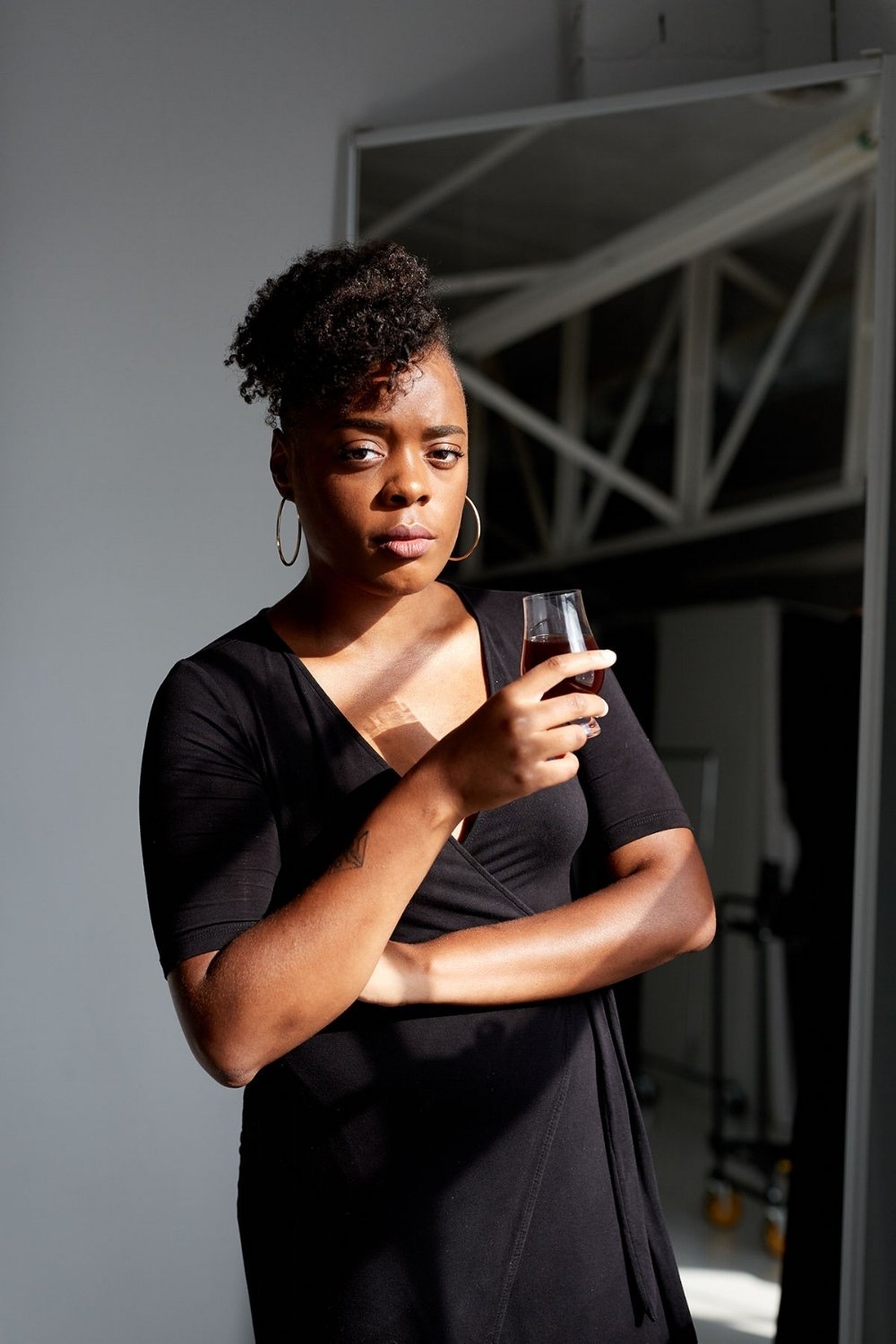 So when certain coffee companies posted their anti-racism statements, the words rang hollow. A wave of revelations arose regarding systematized mistreatment of Black employees throughout prominent coffee brands. Calls for change resounded in posts, tweets and comments sections industry wide.
So when certain coffee companies posted their anti-racism statements, the words rang hollow. A wave of revelations arose regarding systematized mistreatment of Black employees throughout prominent coffee brands. Calls for change resounded in posts, tweets and comments sections industry wide.
I write this as a non-Black coffee pro, for the many non-Black coffee businesses who are struggling to understand the path forward. Many of us are realizing uncomfortable truths about ourselves. We are learning that we have hurt Black people. We are learning that seemingly benign intentions do nothing to mitigate racist impact. Now many are deeply moved to change ourselves and businesses - but don’t know where to start.
Our Black colleagues are exhausted from trying to educate us. Many have already spoken and written extensively about this. We must listen to their words and educate ourselves. Anti-Blackness is deeply rooted in our industry and we must be the ones to fix it. We created it. And we are accountable. To this end, I am presenting foundational information about anti-Blackness and suggestions on how to actively address it in coffee businesses.
What to Expect from This Article
I’ve chosen to eschew the euphemism, vagueness, and gloss with which non-Black people normally discuss anti-Blackness. I do not call for “unity” “peace” and “love” when the issue at hand is, specifically, anti-Blackness. We cannot achieve real peace if we refuse to directly name injustice. You know the phrase No Justice, No Peace? Or perhaps you’ve read Martin Luther King, Jr’s remarks on the white moderate who “prefers a negative peace which is the absence of tension to a positive peace which is the presence of justice”. Let us work toward the presence of justice.
Before addressing anti-Blackness in coffee, I will outline the basic concepts informing the complex issues at hand. I do this because it would be empty to implement policy change without an understanding of its context and history. Some of the organizational actions I suggest are relevant to other forms of discrimination in addition to anti-Blackness. However I am choosing to focus on anti-Blackness, specifically.
I have concluded this piece with 150 additional links to articles and resources, organized by category. Every concept touched upon in this piece is explored in further detail in the resources list.
Speaking directly and specifically about race causes many white people to feel intense racial stress and project that onto the content itself, imagining a harsh and mean tone. I believe this also holds true for non-Black PoC discussing anti-Blackness. But my tone is not harsh; I’m simply writing directly about something that inherently is deeply uncomfortable for non-Black people. We must move through discomfort to move forward.
1. Separate Intention vs. Impact
To this end, we must agree to separate intention from impact. What do I mean by that? Most of us are taught that if we do not intend to be racist, we cannot possibly be racist. However, racism is about impact and not intent. A racist action still has a racist impact even if there was no deliberate intention to harm.
As an example, let’s say I accidentally drop a diner mug on your foot. Those are solid. It hurts you. That is the impact. Even though I had no intention to cause harm. So you exclaim that your foot hurts. Now imagine me saying, “Well I didn’t mean to drop the mug, therefore your foot shouldn’t hurt.” My intention does not negate the impact.
Many instances of anti-Blackness are the result of non-Black people’s unconscious enculturation. Anti-Blackness is modeled for us along every step of our lives, while simultaneously we’re told that racism no longer exists. So we don’t learn to identify anti-Blackness in others and in ourselves. This leads us to cause harm without intending to.
However, to be completely honest, many people do cause racist harm deliberately. And those people still claim to have had no ill intent. So you can see that “I didn’t mean it that way” holds no water as an excuse for anti-Black words and actions. Instead of making excuses, we must commit to learning, acknowledging, and taking responsibility for our impact.
Make this a standard in your team. Make an agreement that “I didn’t mean it” will not be used or accepted when it comes to addressing anti-Blackness. Instead, the focus should be on impact. Listen when the impact is described, acknowledge the impact, apologize for the impact, and make amends.
2. Align on Terms
Many non-Black people, and especially white people, learn insufficient definitions of the words “racism” “anti-Blackness” and “white supremacy”. This severely limits our ability to meaningfully discuss these issues and work toward solutions. “The way we are socialized around racism leaves white people unpracticed and uncomfortable talking about, let alone leading initiatives around race and racism,” says Dr. Kira Hudson Banks.
A deepened understanding will greatly expand your ability to identify issues, discuss with others, and generate or source solutions. Even Merriam-Webster plans to update their definition of “racism” after receiving the suggestion from a Black woman named Kennedy Mitchum. Of course, re-learning must include alignment with others. Set yourself up for success by making sure that your team has a common understanding of what these words mean.
What is Racism?
Racism can refer to the conscious beliefs of an individual person. But it is also structural, thus it is often carried out by individuals following mainstream systems of behavior without understanding the racist impact.
What is Anti-Blackness?
Although this piece focuses on dynamics within the US, anti-Blackness is global. Its specific history differs from country to country but its themes and manifestations are globally interconnected. If you live outside the US, and especially in the Global North, much of what is discussed also pertains to your country. Coffee being a global industry, these issues are pertinent to everyone working in this sector, all over the world.
Many racial groups are marginalized in the United States of America. However, each PoC (People of Color) community has its own unique history and positioning in relation to whiteness. This means that, while there is a lot of overlap, racism is imposed differently on different communities. While all anti-Blackness is a form of racism, not all racism is anti-Blackness.
Some, but not all, of the ideas discussed here may also apply to forms of racism affecting non-Black people. However it is important to note that anti-Blackness is specific, distinct, and informed by the centuries-long oppression of Black people in the US, beginning when white slave traders violently kidnapped the first African people to be sold as property in the Americas.
It can potentially be erasing to refer to anti-Blackness only as “racism’, a category that includes a wide range of issues not experienced by Black people. That is why I am choosing to focus on anti-Blackness, specifically.
What is White Supremacy?
Racism, including anti-Blackness, would not be possible without white supremacy. Yet white supremacy is often ignored in discourse. It is crucial to address white supremacy because doing so directly names the advantages experienced by white and light-skinned people. It calls out that the jobs, opportunities, and resources taken from people of color don’t just disappear into a vacuum; they are awarded instead to white people.
Here’s an example. When a Black employee is denied a promotion, and the promotion goes to a less qualified white candidate - that is both anti-Blackness and white supremacy. Further, both issues are rendered invisible because white supremacy culture teaches us that white people are inherently more qualified for any position.
Naming white supremacy directly challenges the unconscious belief that white people naturally deserve more power, more resources, and a better quality of life.
What does 'Structural' Mean?
However, many non-Black people are taught to deeply trust the structures that directly harm Black people. We grow up believing in schools, banks, TV, individualism, and yes, police. From those trusted structures, we absorb negative messaging about Black people and positive messages about white people. We watch TV news, which vastly overrepresents Black men as criminals. We watch movies where the protagonist is always white. We see white teachers in school disproportionately punish Black students. And we trust all these structures, so we assume the Black people harmed by them must have acted wrongly. We continually support these structures and behave according to their codes and systems. That is how non-Black people participate in structural - also known as systemic or institutional - anti-Blackness.
What is Anti-Racism?
Now that we have aligned on some key words and concepts, let’s apply that lens to the coffee workplace.
3. Name the Foundations of White Supremacy in Coffee
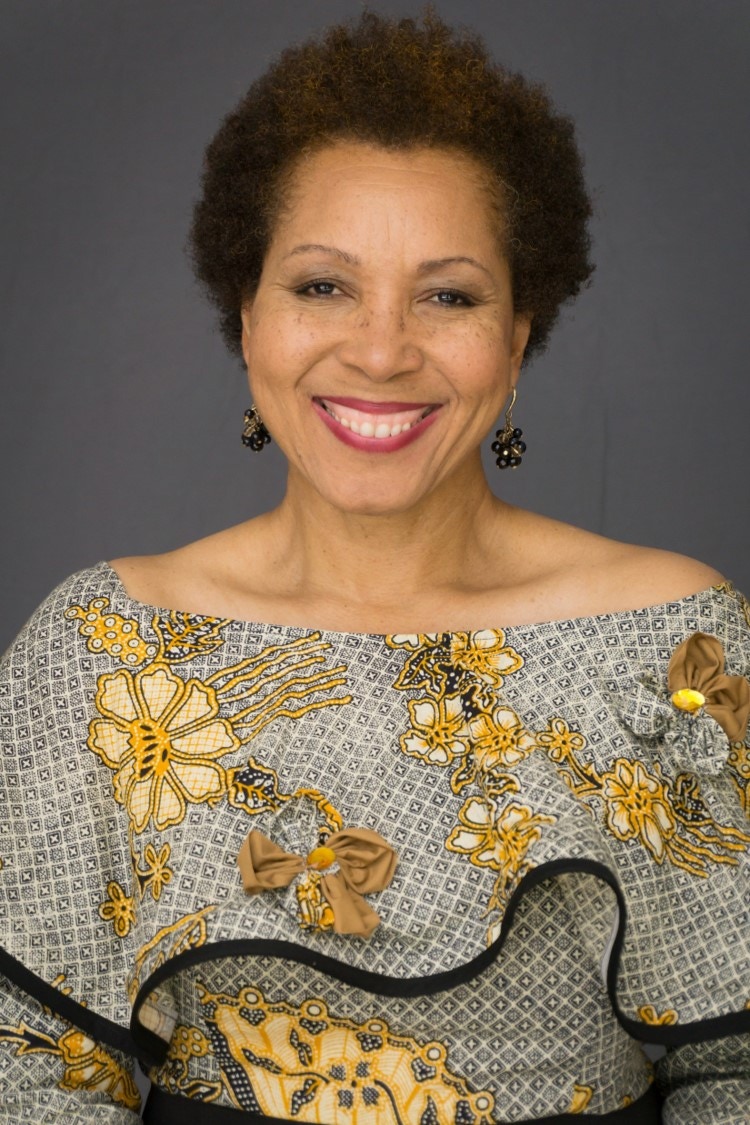 White supremacy is built into the foundation of the coffee industry. The global coffee economy was created through colonialism, the white supremacist system under which European countries invaded, subjugated, and exploited the countries of Black and Brown people. After Dutch spies stole coffee from Africa, Europeans forced Black and Indigenous people into slavery to grow it on colonized land.
White supremacy is built into the foundation of the coffee industry. The global coffee economy was created through colonialism, the white supremacist system under which European countries invaded, subjugated, and exploited the countries of Black and Brown people. After Dutch spies stole coffee from Africa, Europeans forced Black and Indigenous people into slavery to grow it on colonized land.
Today Black and Brown people in the Global South still produce the crop, while white people in the Global North dictate its value, largely through futures trading. This sets the price for coffee so low that farmers lose money on their crops year after year. The Global South’s loss is the Global North’s profit. White people built the coffee trade on colonialism and slave labor, and to this day the Global North profits from selling coffee because of the direct, continual exploitation of Black and Brown people. Even when purchasing through a direct trade model, the buyer determines the price they pay for a given coffee. We’ve come to think of this as normal, but imagine running a coffee shop where you don’t decide how much to charge for your products - the customer decides that for you. You might feel pretty powerless.
Most coffee growing countries export far more coffee than they consume domestically. And the top coffee consuming countries are all majority white countries in the Global North. So we can see that the global coffee industry was founded by white people, for white people, at the expense of Black and Brown people. Given this context, it isn’t shocking that the US coffee industry has a widespread race problem.
Openly acknowledging the history of coffee, however, can be transformative. “How empowering would it be,” writes Gabriel Rhodes in Being Black in Specialty Coffee, “If it were common knowledge that coffee culture originated in Africa, and is the source for the success of this billion-dollar industry?”
Bartholomew Jones, founder of Cxffeeblack, writes, “We are finding our liberation as a people, and now we are liberating our birthright. This cxffee is diaspora history, and it, like us, was created to be taken black. No sugar. No cream. The way God intended.”
4. Identify Anti-Blackness in Today's Coffee Industry
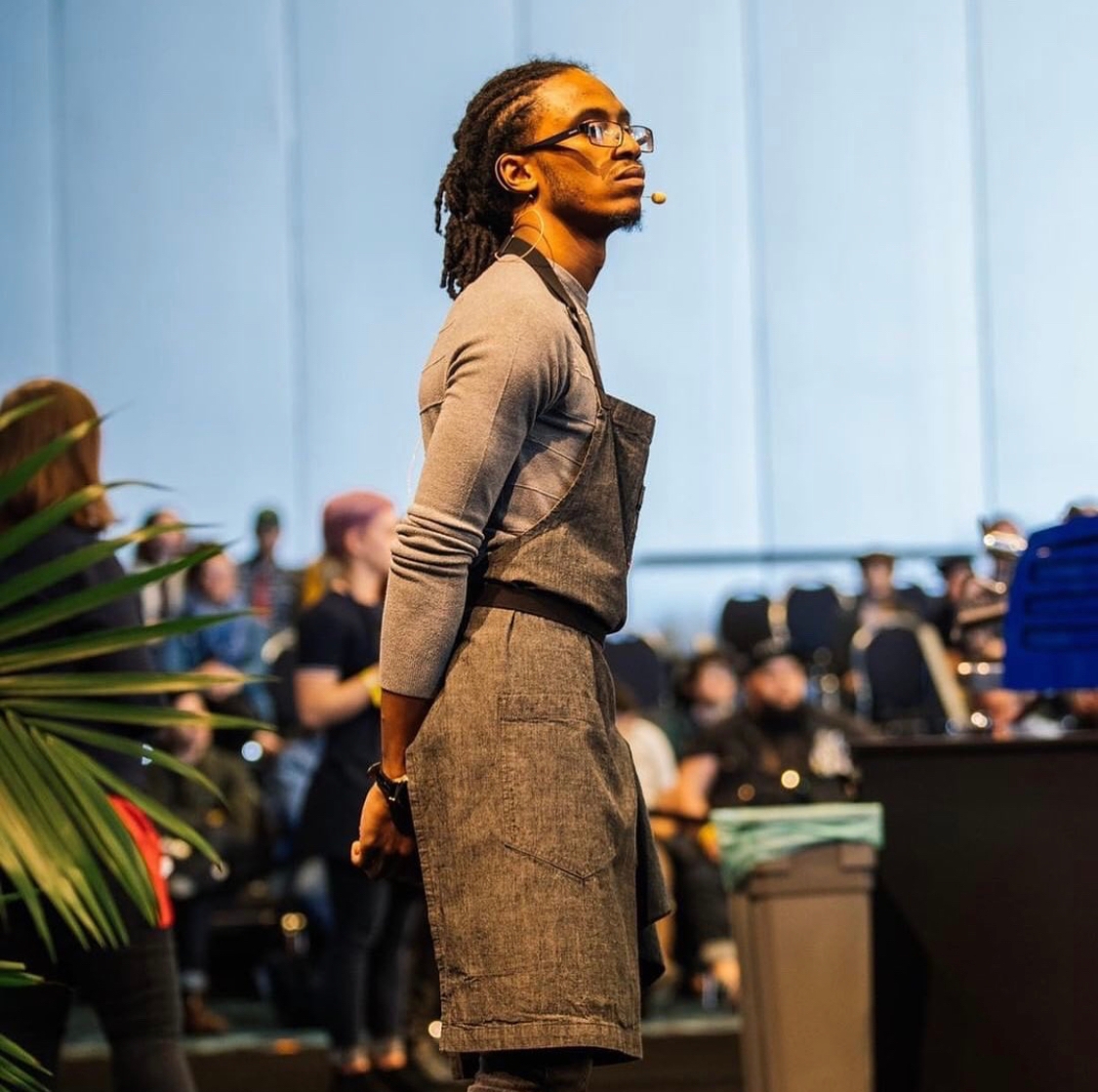
Specialty cafes are overwhelmingly non-Black spaces. White supremacy is conveyed through coded visual and environmental language, and many cafes embody this. The employees are often majority white, white-passing, and light-skinned. The interior design is often literally white. In coffee marketing, Black people are depicted only in barista and service roles, while white people are depicted in leadership and other roles beyond entry level, such as roaster and coffee buyer. This reflects and reinforces the active denial of opportunities for Black people to advance, while white people are overrepresented in leadership and management.
Specialty coffee’s price point creates a financial barrier that also functions as a racial barrier, since white households have, on average, nearly 6.5 times the wealth of Black households. Unsurprisingly, specialty coffee attracts majority non-Black customers.
“With its high price tag,” says Phyllis Johnson in Questions of Race in Coffee, “Do you think that specialty coffee has come to represent a certain social status? Does this in turn push certain communities out from enjoying it, even if they can afford it, because they don’t identify with it? I do. Because of the lack of diversity in ownership of cafes and working in cafes.”
Most specialty cafes are owned by non-Black people. This results from the extremely white culture in US specialty coffee compounded by the structural barriers to entry for Black business owners in every sector. Daniel Brown, owner of Gilly Brew Bar, took to Instagram in early June to share about those challenges. “For many of my customers these events may come as a shock,” said Brown of the nationwide protests, “but for me, it’s built up rage from years of being profiled, marginalized and pushback from leading a Black owned company.” He describes having permits blocked and business loans denied. ‘Gilly has been between a rock & a hard place the last few years ... Yo I’m so tired! I’m fed up.”
Adding to this, specialty cafes are now a symbol of gentrification - the displacement of Black and Brown people from their own neighborhoods by white people. Says Johnson, “In gentrification you have folks coming in, doing things differently in a way that can often antagonize existing communities. If I have lived there for years and years and all of a sudden I am being pushed out, I’m not going to say, ‘Hey, let’s go up to this new cafe!’ because my mindset is, ‘That cafe is really for them, it wasn’t here before they got here, they’ve created the cafes for them.’”
It’s not enough to simply put up a sign saying your cafe welcomes everyone. White supremacy is embedded in the DNA of the cafe’s symbolic construction. And Black people have long been met with hostility in these spaces.
In 2018, a Philadelphia Starbucks had two Black men arrested for simply sitting down at a table as they waited for a business meeting. Despite closing stores for anti-racism training, Starbucks still struggles with systemic anti-Blackness, as evidenced by their recent policy banning employees from wearing Black Lives Matter attire (they retracted the policy and provided official BLM shirts for staff after public outcry and boycotting).
In his article Coffee Shop Racism, Black designer and college professor Alfredo A. Weeks VI describes his experience in a specialty cafe. “I open the door to a coffee shop,” he writes, “and as soon as I get inside I feel the stares.” He describes paying for his coffee, then being denied the bathroom key by a barista who says, “‘We can only give the keys to paying customers.’” “As I come out,” writes Weeks, “Stares from everywhere. Like lasers from across the room, I feel like a moving target.”
In a recent Instagram post, Black coffee professional Cydni Patterson explains how her cafe managers discouraged her family from visiting her at work. “Every time my family would come in to purchase goods and tip their favorite barista, my raggedy ass managers/and wanna be managers would hover,” writes Patterson. “All of my other coworkers’ families would come in, sit at the bar, chit chat for hours ... but mine? We needed to be monitored. It got to the point where they stopped coming by, because the moment that I felt that energy, I would become enraged.”
“Profile your coffee, not your customers,” writes Michelle Johnson in The Black Cup of Excellence: Being Black In Specialty Coffee. “Shopping while black isn't a crime, neither is ordering a caramel macchiato. Consumer racial profiling only shuts out groups of people we could and should be welcoming.”
If you’re reading this and thinking, “That would never happen in my cafe,” remember that anti-Blackness renders itself invisible to non-Black people. You are staring that invisibility cloak right in the face. These things happen every day to Black people, and they could absolutely happen in your cafe. Non-Black people simply have not learned to identify the harm when we see it - or when we commit it ourselves. So how do we begin to interrupt this pattern?
5. Look in the Mirror
Many non-Black coffee people simply assume or hope that nothing anti-Black has ever happened in their cafes. But that is likely not the case. And we cannot meaningfully move toward anti-racism if we don’t know the extent of racial harm that already exists within our organizations. So we must identify harm we may have caused or currently be causing.
Because racism, anti-Blackness, and white supremacy, as we have discussed, are mainstream. We can’t truly honor and believe the experiences of Black people without acknowledging that anti-Blackness is everywhere. Including, in all likelihood, our own workspaces.
Conduct an evaluation of your business with the goal of discovering structural issues like pay inequity, biased hiring and promoting, biased performance evaluations, and lack of support for Black employees.
Evaluate your pay structures. Analyze all of your employees’ pay alongside their race and gender, their job titles, their time with the company, the number of raises they’ve received, and the amounts of those raises. Are your Black employees being paid less than your white employees? If so, identify the systems that allowed it, correct those systems, apologize to your Black employees, and give them the appropriate raises with back pay based on how much they should have earned during their time at your company. You may also identify that other marginalized groups have been underpaid. They are also owed reparations.
In addition to discovering structural anti-Blackness, you will also need to identify interpersonal instances of racism (microaggressions, harassment, bullying, use of slurs). You can do this by creating an anonymous reporting form and asking employees to share if they have experienced racial harm. You can also hold a company meeting. Please keep in mind that it is extremely difficult for employees to openly share about painful racialized experiences in front of the entire company and to leadership. It doesn’t matter how nice of a boss you are, if you have the power to fire, demote, or deny raises - that is always felt. Read on for suggestions.
6. Facilitate Open Conversations about Anti-Blackness
Make it ok to talk about racism, anti-Blackness, and white supremacy at work. Codes of professionalism strongly dictate against this, but professionalism culture upholds white supremacy. By silencing these conversations at work, we allow the problem to thrive unnamed.
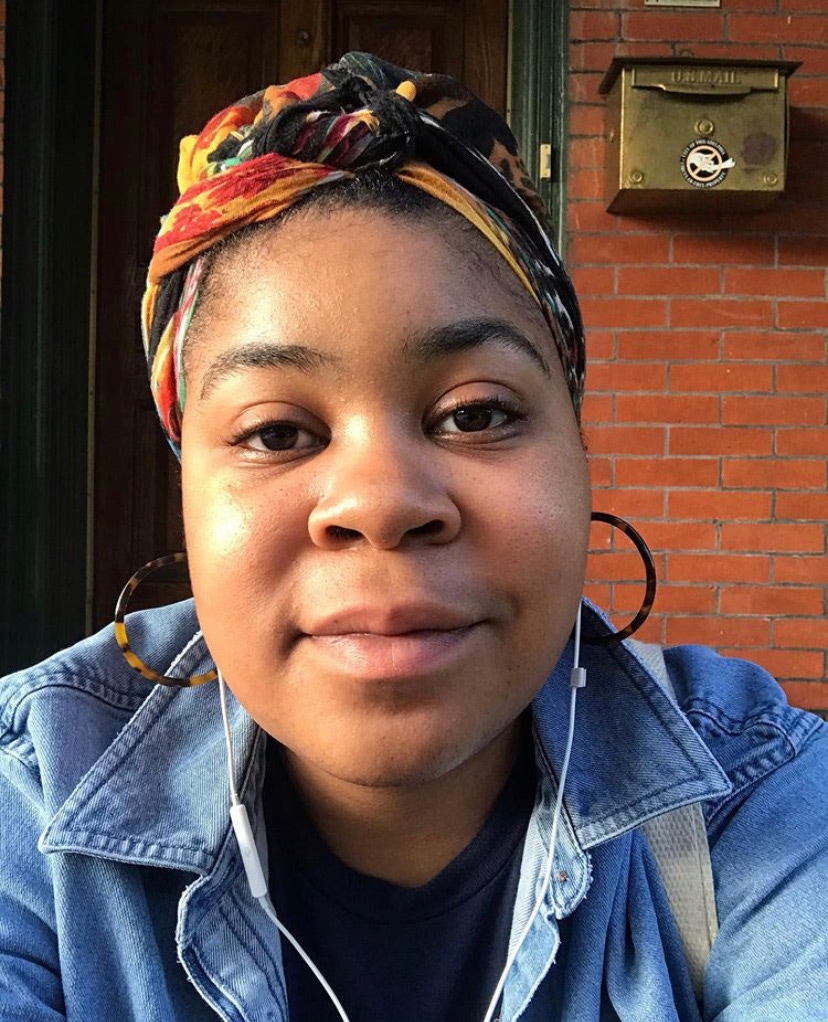 “Extraction and racism are both terms that need to be fully understood by coffee professionals,” says coffee professional D’Onna Stubblefield in Strong Black Coffee. Quite simply, non-Black people have to learn what anti-Blackness looks like in order to stop participating in it. We must learn to identify and interrupt the microaggressions, discrimination, and violence that marginalize Black people. This is crucial for non-Black people to understand how to serve Black people in hospitality spaces and respectfully engage with their Black coworkers.
“Extraction and racism are both terms that need to be fully understood by coffee professionals,” says coffee professional D’Onna Stubblefield in Strong Black Coffee. Quite simply, non-Black people have to learn what anti-Blackness looks like in order to stop participating in it. We must learn to identify and interrupt the microaggressions, discrimination, and violence that marginalize Black people. This is crucial for non-Black people to understand how to serve Black people in hospitality spaces and respectfully engage with their Black coworkers.
Talking about race is highly stressful for many white people. But avoid prioritizing or centering white fragility over the pain of Black and Brown people. In these conversations, there is greater risk for emotional harm to your Black and Brown employees who have suffered from racism and white supremacy for their entire lives. So the conversation must be grounded in agreements that aim to reduce harm to Black and Brown employees.
Establish ground rules before the discussion. Read this article and the other resources linked at the end of this piece to help you determine goals, setting, and other considerations. Agree to focus on impact and not intention when discussing racial harm. Align on terms. Do not ask Black employees to educate you or to provide “the Black perspective”. Do not center white guilt or white tears.
Recognize that many Black people have been made to feel that they should never share about their experiences of anti-Blackness in the workplace, period. Going into the meeting, all attendees should be reminded, in writing, that they will not be retaliated against in any way for discussing instances of harassment or discrimination. Additionally, employees should be paid to attend the discussion.
Find a local organization who can provide anti-racism training for your staff. Create anti-racism materials that can be provided to all new team members as they join your company. Be prepared to follow up, act, apologize, and make amends and reparations based on what you learn in training and other discussions. Any issues that are surfaced must be taken seriously and addressed.
Talking about racism and white supremacy in the workplace might feel uncomfortable, but it is deeply necessary. And if you consistently make an effort to open up conversations, they will become more normalized within your workplace.
7. Implement Policy Changes
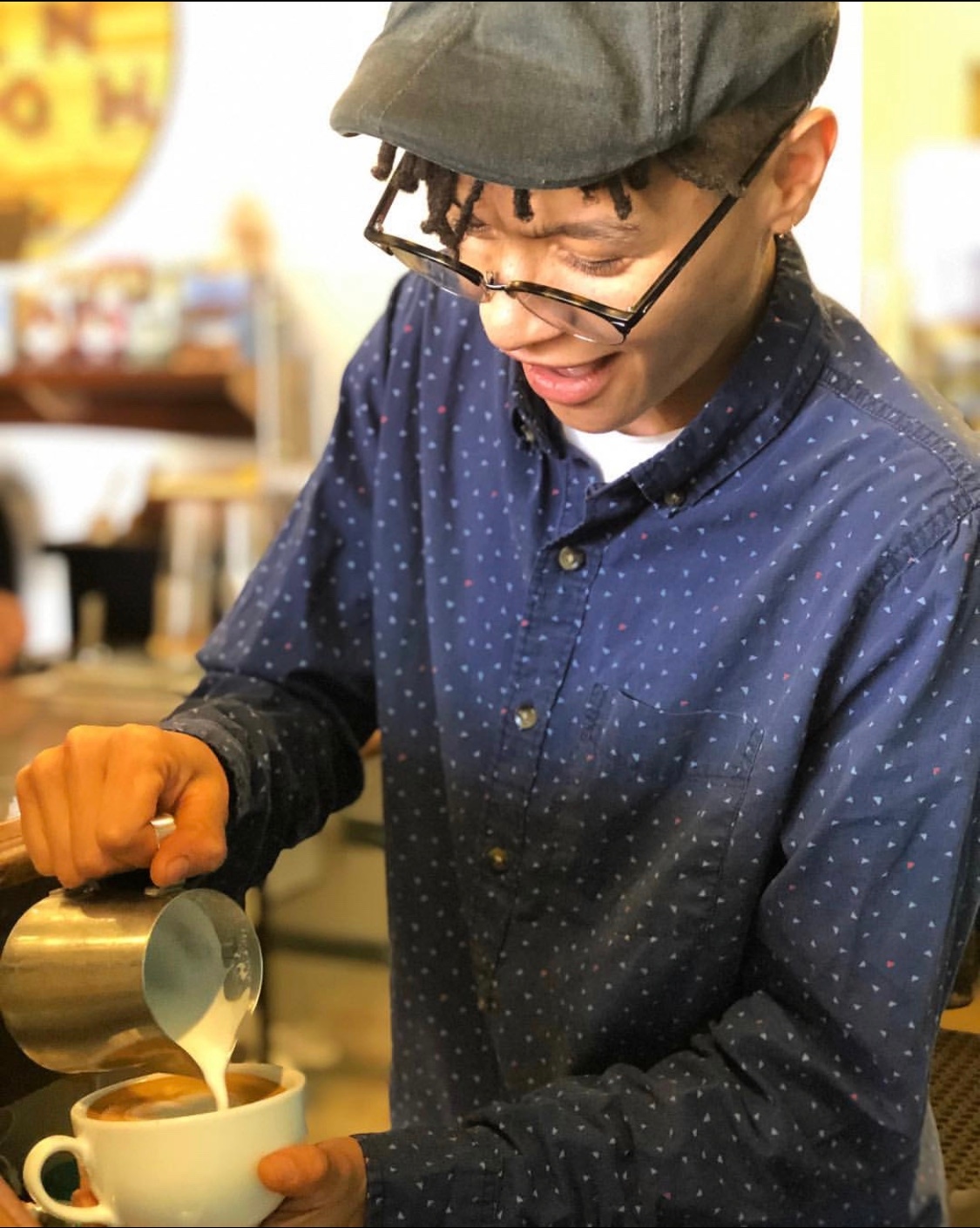
How do corporate policies protect the interests of white people? The answers are many and varied, from hair discrimination to vague wording that allows for racist misinterpretation. After the Philadelphia Starbucks incident, CEO Kevin Johnson directly cited policy failure. “Regretfully, our practices and training led to a bad outcome,” he stated. The issue was that the managers were allowed to make subjective judgement calls about when to call police - and unconscious bias lives in subjectivity.
When creating policy, use specific language designed to support marginalized people. When a Black employee experiences microaggressions at work, they should be supported by policy that recognizes microaggressions as harassment. That way, an employee reporting anti-Blackness microaggressions won’t be subject to a non-Black manager saying, “Well, that doesn’t seem like a big deal” or “they probably didn’t mean it that way”. Yes, this can happen even after the manager goes through anti-racism training.
Overall, aim to create not just an anti-racist team of people, but an anti-racist set of systems. Some changes may seem radical, but radical change is needed. As an example, you may discover that your company is underpaying Black people. To address this, your managers can undergo antiracism training - but think about the systems involved as well. It’s been shown that pay secrecy contributes to unequal pay along racial lines. So consider implementing pay transparency, with raises decoupled from subjective evaluations which can be informed by unconscious bias.
If you discover that employees are afraid to bring discrimination issues to management, train your managers but also change your reporting system. You could try this tool that allows employees to anonymously report harassment and discrimination.
As another example, let’s refer back to the piece Coffee Shop Racism by Alfredo A. Weeks IV. Alfredo was denied the restroom key in a cafe, by a barista who assumed he wasn’t a paying customer. Anti-racism training may help staff understand why this is anti-Black discrimination. But a policy change is also needed.
“We treat everyone equally” doesn’t suffice as a hospitality policy. Everyone interacts a little differently with different people, and if you can recognize that, then factor in a lifetime of white supremacist enculturation. We simply cannot rely on the default mode of hospitality, which alienates and criminalizes Black people - i.e. calling the cops on Black men for sitting, or denying the restroom key to Black customer. In fact, Danny Meyer, specialty coffee’s hospitality hero, is currently in hot water over widespread racism in his organization. We must fundamentally alter our hospitality in a way that centers anti-racism, and encode this into policy.
One simple example would be to remove gatekeeping around who gets access to a restroom key. What if the bathroom key was made accessible to anyone who asks? Open that up for discussion. Try it and see how it goes. You may even improve community relationships as you will be serving your neighborhood with this resource.
Some companies will inevitably need to make more complex and difficult changes. You may need to hire a third party to conduct an internal investigation. You may need to discipline or fire employees who have caused severe harm. You may need to reopen past complaints of discrimination that were ignored. These are all things that are happening in coffee companies as we speak.
Just remember that your company’s anti-racism policies require a solid foundation. Some of us may need to tear out the old one but it’s necessary to build anew.
8. Diversify Your Team
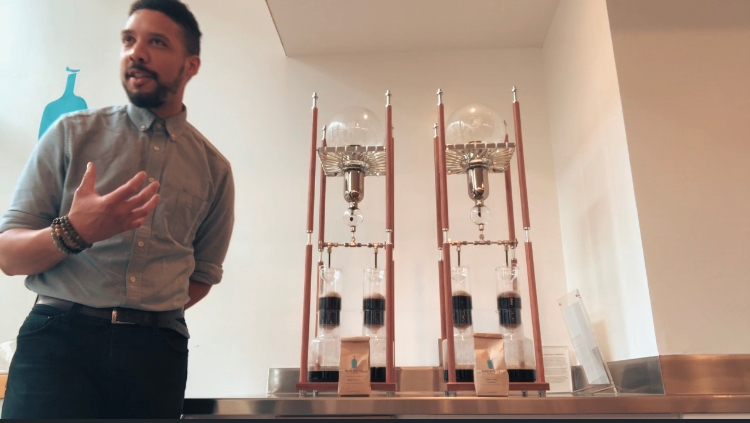
Where to start? Evaluate the demographic makeup of your company. How many Black employees are currently on your team? Consider the experience of being racially isolated within a non-Black team. Black people in the workplace experience a high level of racial othering and microaggression. They are made to act as cultural ambassadors. They are pressured to conform to white supremacist codes of professionalism, like straightening their hair and suppressing emotional responses to workplace racism. Black people are also less likely to receive support from their coworkers.
“The pressure of occupying these spaces forces us to conform to a society that alienates us - our verbiage, individuality, and culture limited under their guise of professionalism,” says coffee professional Anthony Ragler in his 2020 US Barista Championship routine.
This is bad enough on its own, but a non-diverse team makes it even more stressful for a Black employee to report discrimination and microaggressions. Non-Black people, enculturated into the same systems of anti-Blackness, are taught to inherently disbelieve Black people. Imagine if your boss, your managers, your co-workers, and the majority of your customers had been taught their whole lives to harm you without seeing the harm, and to discredit and silence you when you report it.
It is hard for many non-Black people to imagine that this could be us, or our co-workers, or our employees. But anti-Blackness and white supremacy are omnipresent structures. To truly acknowledge that, we must accept that our spaces are not magically immune just because we’re nice people.
Regarding team demographics, consider also the impact on Black customers. When Black people don’t see themselves represented in your team, it adds to the message of unwelcome. Additionally they are more likely to experience anti-Blackness from non-Black employees.
Monarch Coffee, a white-owned business in Kansas City, MO, tracks the demographic state of their team as an active anti-racism practice. Currently their team is at 55% BIPOC (Black, Indigenous, and People of Color). If your team’s demographic state is less Black than the national demographic or the local demographic, you will need to change that by diversifying your hiring. In addition to creating a more welcoming and safe environment for Black people, diverse teams have proven, time and time again, to perform better.
“Typically, people hire the same people, which causes stagnation,’ says coffee professional Tymika Lawrence in Strong Black Coffee. “This flies in the face of logic, when there’s proof that diverse work environments yield better performance.”
Lastly, specialty cafes are directly linked to the gentrification of Black and Brown neighborhoods. As we’ve outlined already, cafes are inherently white and non-Black spaces, and this is worsened when the staff is much more white than the surrounding neighborhood. If your cafe is in a Black neighborhood, you should be hiring people from the neighborhood. Diversifying your team must also be about connecting with the community you serve.
“A lot of times,” says Cydni Patterson in Being Black in Specialty Coffee, “The cheaper land [is the land] my peoples were relegated to live in. If you’re gonna put your shop in a neighbourhood that is historically exploited, you should put the effort into hiring practices and find people who know the area. It makes more sense to… get to know the neighbourhood, hire people in the neighbourhood.”
9. Promote and Hire Black Businesses
As we’ve covered, there are many structural barriers in place that can make Black business ownership extremely challenging. Adding to this, Black-owned businesses are vastly underrepresented in the coffee world. Make it an active practice to partner with Black businesses!
Hire Black vendors for your popup events and for your everyday cafe operations. Where do you get your coffee? Pastries? Sandwiches? What magazines do you keep in the space for customers? Feature Black artists on your walls. Promote the work of Black businesses on your social media. Hire Black content creators for your digital marketing. Invite Black coffee professionals to speak at your events. Look for opportunities to support and promote Black people in every area of your business operations.
Be aware that it is not ok to expect Black people to speak about race if that is not their job. If you invite a Black coffee professional to join a panel, the invitation should be to speak about coffee. You wouldn’t invite a white coffee professional to speak about race. If you want diversity insights, invite a professional in that field. “It’s time to stop clout-chasing and tokenizing us,” says Chris McAuley of Getchusomegear.
And remember to Pay! Black! People! In the specialty coffee industry, as in many industries, it’s sadly common practice for businesses to ask for uncompensated labor. This disproportionately impacts Black people and especially Black women, who are already systematically underpaid. Remember, if you are asking for a Black person’s help, advice, insight, opinions, or expertise - this is labor that should be compensated. In a culture where Black folks are systematically underpaid, let’s be a part of the solution.
10. Keep Learning
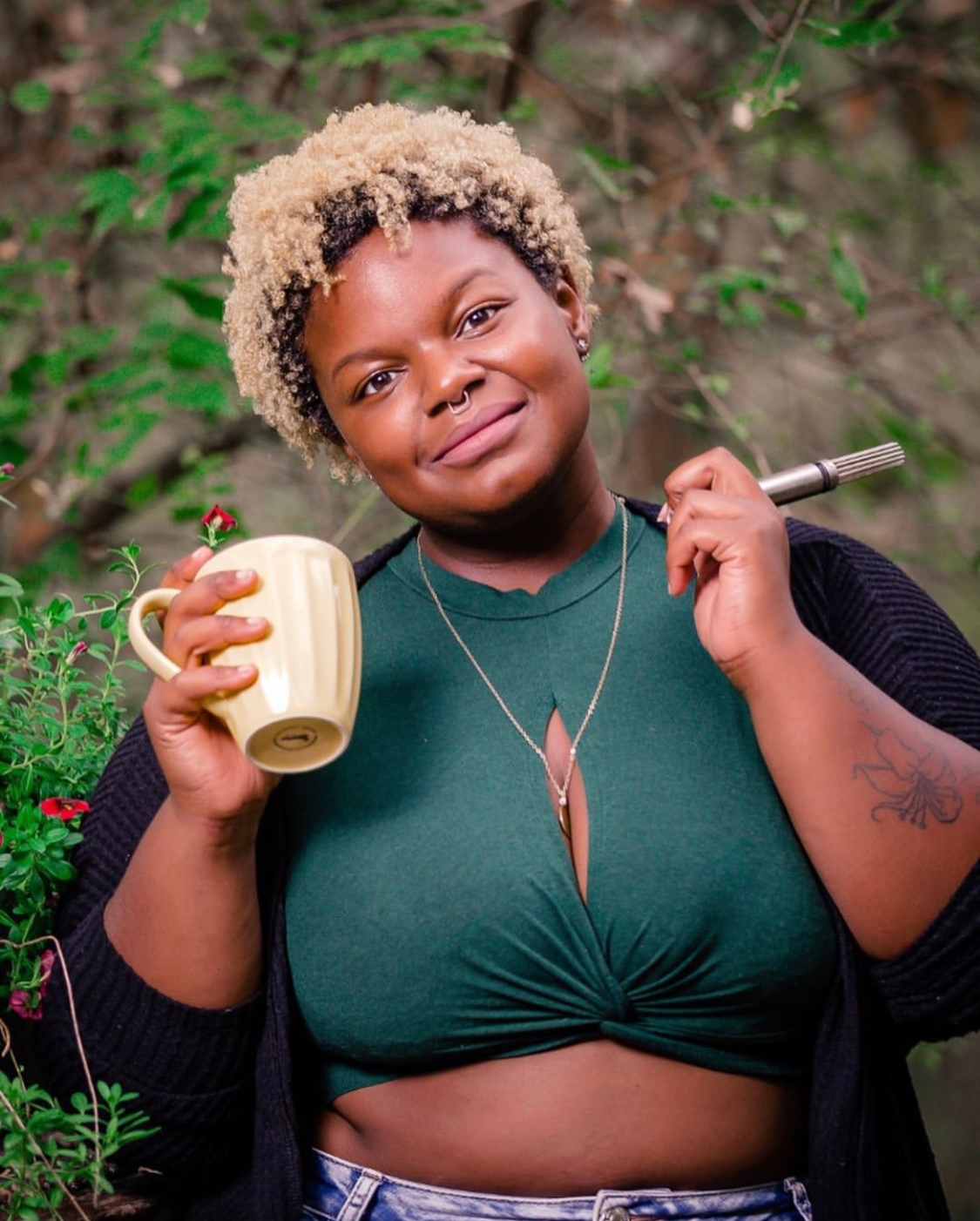
I will leave you with these words by Cydni Patterson:
“Coffee is good to my black soul. When the earth thought of coffee, it gave it to us first. My value isn’t relegated to how much peace I can make with the paradox of your thoughts of me and who I am. I want to sign off with limitless black joy.
Coffee has taken me places that I never knew I needed to go. I can text my heroes. I can touch something that has touched the grounds of my ancestors. I will find a way to get there one day, and BAYBEE when! I! Arrive!
I can extract the sweetness of our survival. I can relate to the bitterness of being separated from my home as an import, ground up, burned, enjoyed, and thrown away. ... I like to partner some harsh truths with some sweet joy, because none of us exist in a vacuum.
Don’t let this moment go without growing. Let’s rebuild a table that fits everybody! Whether we have a place or not, we’re gonna eat. Just because we refuse to smile at our own mistreatment anymore, doesn’t mean we don’t smile. Just because we aren’t centering you, doesn’t mean we are disoriented. Just because you’re not ready for us, doesn’t mean we’re not here!”
A curated list of resources
- 8 Minutes and 46 Seconds: How George Floyd Was Killed in Police Custody
- How the Black Lives Matter Movement Went Mainstream
- Tracking protests across the USA in the wake of George Floyd's death
- List of George Floyd Protests All Over the World
DEFINING RACISM, ANTI-BLACKNESS AND WHITE SUPREMACY
- Merriam-Webster Revises ‘Racism’ Entry After Missouri Woman Asks for Changes
- Racism Defined
- Let’s Talk About Anti-Blackness
- Call It What It Is: Anti-Blackness (When Black People Are Killed By Police, ‘Racism’ Isn’t The Right Word)
- White Supremacy Culture
- As a Black man, I refuse to bow to spirit of white supremacy: Subtle manifestations serve as unwelcome reminders that tell Black Americans we do not belong
- “What’s ‘Colorism’?”
- The Roots of Colorism, or Skin Tone Discrimination
HISTORY OF AMERICAN ANTI-BLACKNESS AND WHITE SUPREMACY
- Thanksgiving: The Annual Genocide Whitewash
- 400 years since slavery: a timeline of American history
- How slavery became America’s first big business
- 15 American landmarks that were built by slaves
- Historian and author Edward E. Baptist explains how slavery helped the US go from a “colonial economy to the second biggest industrial power in the world.”
- Jim Crow laws created ‘slavery by another name’
- Why the Nazis Loved America
- Top Nixon adviser reveals the racist reason he started the 'war on drugs' decades ago
STRUCTURAL ANTI-BLACKNESS
- Numbers behind anger: U.S. racism, inequality in stats
- The History of Mass Incarceration: From Alexis de Tocqueville to Ronald Reagan, the forces that have shaped the current state of our prison system.
- Mass incarceration in America, explained in 22 maps and charts
- Legal Scholar: Jim Crow Still Exists In America (The New Jim Crow)
- The Prison Industrial Complex: Why American Prisons Owe Their Cruelty to Slavery
- How racist policing took over American cities, explained by a historian
- Rate of fatal police shootings in the United States from 2015 to June 2020, by ethnicity
- There’s overwhelming evidence that the criminal-justice system is racist. Here’s the proof.
- Redlining was banned 50 years ago. It’s still hurting minorities today.
- Modern-day redlining: How banks block people of color from homeownership
- The devaluing of Black property has led to the devaluing of Black lives: Andre Perry on how lenders and home appraisers contributed to this moment in the fight against racism.
- RESEARCH SHOWS FOOD DESERTS MORE ABUNDANT IN MINORITY NEIGHBORHOODS
- The Troubled History of American Education after the Brown Decision
- America Has to Take Its Knees Off the Neck of Public Education, Too
- How Systemic Racism Infiltrates Education
- How the School-to-Prison Pipeline Works
- Banking while Black: Minority business owners with better credit scores than white counterparts face worse treatment and more scrutiny
- 5 Challenges Faced By Women Entrepreneurs of Color
- Why Can’t We Close the Racial Wealth Gap?
- What Did Cedric Robinson Mean by Racial Capitalism?
- We must put a stop to racial capitalism, making money off Black and brown bodies
- HOW RACIAL STEREOTYPES IN POPULAR MEDIA AFFECT PEOPLE — AND WHAT HOLLYWOOD CAN DO TO BECOME MORE INCLUSIVE
- Media Representations and Impact on the Lives of Black Men and Boys
- The Dangerous Racialization of Crime in U.S. News Media
- Out of 30,000 Hollywood film characters, here’s how many weren’t white
- Voter Suppression Is Warping Democracy
- Despite Diverse Demographics, Most Politicians Are Still White Men
- Why Can’t We All Just Be Individuals?: Countering the Discourse of Individualism in Anti-racist Education
TALKING ABOUT RACISM AND ANTI-BLACKNESS
- Racial Microaggressions
- 'There Is No Neutral': 'Nice White People' Can Still Be Complicit In A Racist Society
- Not being racist isn't enough in America
- Happy Talk About Diversity Avoids Difficult Racial Issues
- Tone Policing
- When White People Are Uncomfortable, Black People Are Silenced
- A White Damsel Leveraged Racial Power and Failed: Historically speaking, when white people are afraid, it is usually people of color who get hurt.
- The White Moderate (Letter from Birmingham Jail (ext) by Rev. Martin Luther King, Jr., 16 April 1963
- Color-Blindness Is Counterproductive
- A Sociologist Examines the “White Fragility” That Prevents White Americans from Confronting Racism
- Robin DiAngelo: Think Impact, Not Intention — Transcript
- White Centering
- How white women use strategic tears to silence women of colour
- For white people considering anti-racism, when your Black friends and colleagues have had enough
- What too many white people still don’t understand about racism
- White America, if you want to know who’s responsible for racism, look in the mirror
- The Anatomy of White Guilt
- I’m so tired of white guilt
- When The 'White Tears' Just Keep Coming
- How to Compensate Black Women and Femmes on Social Media for Their Emotional Labor
- How to have more productive conversations about race in the workplace
- GUIDE to RESPECTFUL CONVERSATIONS
ANTI-BLACKNESS IN NON-BLACK COMMUNITIES OF COLOR
- NON-BLACK PEOPLE OF COLOR NEED TO START HAVING CONVERSATIONS ABOUT THE ANTI-BLACKNESS IN OUR COMMUNITIES: A guide to starting anti-racist conversations with friends and family.
- Asian Americans Need to Go Beyond Apologizing for Anti-Black Racism
- These leaders say Latinos need to acknowledge their racism, too
WHITE SUPREMACY IN SPECIALTY COFFEE
- Colonialism, Explained
- Why Should You Drink Your Coffee Black?
- Slavery & Specialty: Discussing Coffee’s Black History
- Rethinking The C Price: Should We Change How We Price Coffee?
- Scandal Of The C-Price
- Coffee: Who grows, drinks and pays the most?
- Curated Tolerance: the aesthetics of gentrification
- How To Know If Your Neighborhood Is Being Gentrified
- Shopping While Black
- Black Loiterers, White Lingerers, and Starbucks Coffee
- Black men arrested at Philadelphia Starbucks say they feared for their lives
- Union Square Hospitality Is Overhauling Its Diversity Program After Widespread Staff Complaints
- In the Wake of Social Media Blowback, Boba Guys Fires a Manager for Racist Comments
BLACK EXPERIENCES IN SPECIALTY COFFEE
- Strong Black Coffee: Why Aren’t African-Americans More Prominent in the Coffee Industry?
- The Black Cup of Excellence: Being Black in Specialty Coffee
- Questions Of Race In Coffee With Phyllis Johnson Of BD Imports
- Coffee Shop Racism
- Being Black in Specialty Coffee
- Phyllis Johnson - Instagram Statement
- The Chocolate Barista - Instagram Statement
- Getchusomegear - Instagram Statement
- Cydni Patterson - Instagram Statement
- Gilly Brew Bar - Instagram Statement
- WATCH: Anthony Ragler, US Barista Championships 2020
- The Activist Introducing Intersectionality to Hospitality
- Black Owned Specialty Roasters (Continued In Comments)
WORKPLACE DISCRIMINATION
- Being Black—but Not Too Black—in the Workplace
- Workplace discrimination is illegal. But our data shows it’s still a huge problem.
- Minorities Who 'Whiten' Job Resumes Get More Interviews
- Report: Black women less likely to be promoted, supported by their managers
- Women of Color Get Less Support at Work. Here’s How Managers Can Change That.
- Black Workers Really Do Need to Be Twice as Good: African American employees tend to receive more scrutiny from their bosses than their white colleagues, meaning that small mistakes are more likely to be caught, which over time leads to worse performance reviews and lower wages.
- The Bias of ‘Professionalism’ Standards: Professionalism has become coded language for white favoritism in workplace practices that more often than not privilege the values of white and Western employees and leave behind people of color.
- Virginia is now the fourth state to ban hair discrimination
- People Suffer at Work When They Can’t Discuss the Racial Bias They Face Outside of It
- Report: Emotional Tax: How Black Women and Men Pay More at Work and How Leaders Can Take Action
- Why Most Performance Evaluations Are Biased, and How to Fix Them
- Employee Performance Reviews are Bullshit
- Anti-racism and people of color talking about the wage gap
- Race, Work, and Leadership: New Perspectives on the Black Experience
CORPORATE ANTI-RACISM
- Urgently Looking For Anti-Racism Training for Your Company? Start Here.
- Black Owned DEI Companies + Consultants Currently Accepting New Corporate Clients
- Two Types of Diversity Training That Really Work
- This tool lets you anonymously report harassment and bias
- Harassment Policy Tips
- Starbucks’ Vague Policies on Nonpaying Customers Make Stores Friendlier—For Some
- How unconscious bias affects employee experience—and how to reduce it
- These Philly coffee shops do the opposite of gentrification
- Want to Close the Pay Gap? Pay Transparency Will Help
- Pay Secrecy is Illegal. Pay Transparency is On the Rise
- One Black employee’s answer to “How can I help?”
- Is Your Company Actually Fighting Racism, or Just Talking About It?
- Human Resources and Justice: Addressing Racism and Sexism in the Workplace (free PDF)
- Simple Suggestions To Build A More Diverse Organization
- Organizational Racism: Self-Assessment
- CSUCI: Diversity and Inclusion Self-Assessment
- CONDUCTING A CULTURAL COMPETENCE SELF-ASSESSMENT
- Why Diverse Teams Are Smarter
- Five questions everyone should be asking about their company’s hiring process
- Hiring a Diverse Staff
- Workplace Diversity Through Recruitment: A Step-By-Step Guide
- A Data-Driven Approach to Hiring More Diverse Talent
- 10 Ways to Attract and Hire Diverse Candidates
- How to have more productive conversations about race in the workplace
- GUIDE to RESPECTFUL CONVERSATIONS
- Monarch Coffee’s Anti-racism Practices
- 5 ways to start being a better ally for your Black coworkers
- TOWARD A RACIALLY JUST WORKPLACE
- What Companies Can Do to Combat Systemic Racism Against Black Colleagues in the Workplace
- THE CHARACTERISTICS OF WHITE SUPREMACY CULTURE
- I Don’t Need ‘Love’ Texts From My White Friends: I need them to fight anti-Blackness.
- Black People Need Stronger White Allies — Here’s How You Can Be One
- 31 Resources That Will Help You Become a Better White Ally
- First, Listen. Then, Learn: Anti-Racism Resources For White People
BOOKS
- Anti-Racist Reading List from Ibram X. Kendi
- 7 important books for an antiractist workplace
- The anti-racist resources Fortune staffers are reading and sharing
- 7 Anti-Racist Books Recommended by Educators and Activists
- This List Of Books, Films And Podcasts About Racism Is A Start, Not A Panacea
- Check out more than 20 must-read books to learn more about Black history, racism and social justice
- These Books Can Help You Explain Racism and Protest to Your Kids
FILMS
